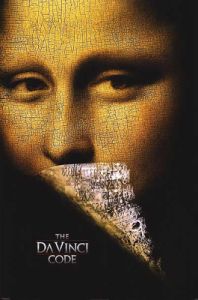If you have a website and are so inclined to promote my book, I have created some code for you. Just copy and paste.
It will look like this:

Purchase Dana Swier Huff’s A Question of Honor at Lulu.com

If you have a website and are so inclined to promote my book, I have created some code for you. Just copy and paste.
It will look like this:

Purchase Dana Swier Huff’s A Question of Honor at Lulu.com
My host, Bluehost, allows users to install various software programs and scripts on their websites by using Fantastico, a one-click auto-installation service. Users can have WordPress and wikis installed via Fantastico. I have never used Fantastico, but Steve has. He recently had his personal site blocked because his site was using more than 20% of the server’s CPU. Bluehost gets very testy about this if you question them on it, as evidenced it their forums. I have never received one of these dreaded messages, despite the fact that I have more blogs installed on my site, and all of mine are installed on one account (huffenglish.com and danahuff.net are actually both on the same account). Steve has received the messages three times, I think. My conclusion, which may or may not be correct, is that he was dealing with inefficient installations from Fantastico. After I got Bluehost to unblock his account, which was a bit of a task, I upgraded him to the latest WordPress install and deleted any files that looked like they were related to his Fantastico install. I also deleted files and folders he wasn’t using for any reason. He has something like eleven folders on his crime blog domain, and he’s only using two. I let those alone, but I think he needs to clean up his site. You can sure tell he has ADD, and that’s no lie. So far, so good. No more CPU excess messages, no blocked websites. We’ll see if the trend continues. If it does, then I’m going to assume I’m right about Fantastico.
[tags]Fantastico, Bluehost, CPU, WordPress[/tags]
I recently announced on my cooking blog that I will be discontinuing that blog, mainly because I lost interest in it. I thought from the beginning what would really work is a recipe blog. Folks aren’t interested in how much I spend on groceries; they want to know how to make something. I convinced my sister to participate with me, and you can read the Swier sisters’ recipes at Two Steamin’ Sisters. Yeah, about the title: if you have suggestions, we’re all ears. The blog’s title can easily be changed. Check it out!
[tags]recipes, blog[/tags]

 I checked out the entertainment roster for this year’s Georgia Renaissance Festival. Two of their most popular acts, Hack and Slash and the Zucchini Brothers are nowhere to be found. I couldn’t discover why neither act was on the roster at their personal websites, but at the MySpace page for Hack and Slash, I found the following in a blog post:
I checked out the entertainment roster for this year’s Georgia Renaissance Festival. Two of their most popular acts, Hack and Slash and the Zucchini Brothers are nowhere to be found. I couldn’t discover why neither act was on the roster at their personal websites, but at the MySpace page for Hack and Slash, I found the following in a blog post:
We won’t be returning to the Georgia Rennaissance [sic] Festival this year, as they are making big changes to their entertainment roster. Thanks for the many emails we’ve received from our GARF supporters. We’ll miss seeing you all and sharing the stage with the Zucchini Brothers this Spring.
I think the boys were careful with what they said, but reading between the lines, it looks as it if is the Georgia Renaissance Festival’s choice not to invite either Hack and Slash or the Zucchini Brothers back. I think this is a huge mistake! I go to the Georgia Renaissance Festival every year without fail, and we always see three acts, no matter what: the Lost Boys, Hack and Slash, and the Zucchini Brothers. If you have enjoyed Hack and Slash and the Zucchini Brothers in the past, please write to the Georgia Renaissance Festival and ask the entertainment organizers to bring them back!
[tags]Georgia Renaissance Festival, Hack and Slash, Zucchini Brothers, entertainment[/tags]
In a previous post, I asked you to share your picks for Books America Can’t Live Without. Please visit my education blog to vote for your selections.


“I Want Someone Badly” by Shudder to Think, featuring Jeff Buckley from the motion  picture soundtrack album First Love, Last Rites.
picture soundtrack album First Love, Last Rites.
[tags]Jeff Buckley, Shudder to Think, I Want Someone Badly[/tags]

 What might women writers accomplish, given the freedom to create enjoyed by men? Virginia Woolf’s thesis in her classic A Room of One’s Own is that if women were given £500 a year and a room of their own, they might then be able to reach the genius previously the purview of men alone.
What might women writers accomplish, given the freedom to create enjoyed by men? Virginia Woolf’s thesis in her classic A Room of One’s Own is that if women were given £500 a year and a room of their own, they might then be able to reach the genius previously the purview of men alone.
As I read this essay, I mostly felt disgust and anger. In many ways, women are still second-class citizens, and what’s worse is the acceptance of this status. When I was considering careers for myself, I didn’t think about traditionally male careers such as engineer or even physician. It wasn’t that I considered myself incapable or unintelligent. I just didn’t consider those options.
The other night on Saturday Night Live, Chris Rock was discussing the possibility that Hillary Rodham Clinton might be president. He insisted that white women have not struggled, and he attempted to develop this idea with examples of black men hounded by racists, executed, tortured, silenced. And it is true that these atrocities happened. But he is forgetting the quiet desperation of birthing thirteen children, losing perhaps half of them before they reached adulthood, spending days working in the kitchen and in the fields, sewing by candlelight, teaching children, helpmeet to a husband, always owned by some man from birth to death, whether father, husband, or son. Who is he to belittle the suffering of women because it is different from the suffering of black men?
Woolf says,
Young women … you are disgracefully ignorant. You have never made a discovery of any sort of importance. You have never shaken an empire or led an army into battle. The plays of Shakespeare are not by you, and you have never introduced a barbarous race to the blessings of civilisation. What is your excuse? It is all very well for you say, pointing to the streets and squares and forests of the globe swarming with black and white and coffee-coloured inhabitants, all busily engaged in traffic and enterprise and love-making, we have had other work on our hands. Without our doing, those seas would be unsailed and those fertile lands a desert. We have borne and bred and washed and taught, perhaps to the age of six or seven years, the one thousand six hundred and twenty-three million human beings who are, according to statistics, at present in existence, and that, allowing that some had help, takes time. (112)
While it is true that women have made strides since Woolf wrote this essay in 1928, I was rather dismayed by how little we have actually moved in the grand scheme of things. We actually debate issues such as whether America is ready for a woman president (or a black president, for that matter)? Why? Why are women still paid less for the same work as men? Why are little girls sold dolls who tell them “math is hard”? Why is one of the worst insults a man can deliver to another man a pejorative term for a woman’s reproductive organs?
A feminist is someone who believes that men and women should be equal, but you will find that many people in our world today are loathe to call themselves feminists, even if they believe in equality for the sexes.
I am glad that I am living today rather than in the time of our earliest women writers. Did you know that Mary Wollstonecraft, author of A Vindication of the Rights of Woman, tried to drown herself? Her skirts buoyed her up and saved her life. Wollstonecraft’s thesis was much the same as Woolf’s: women are not intellectually inferior to men; women have not had the same opportunities for education, and (Woolf deduces by extension) time, sufficient quiet, and freedom from worries about money in order to create. Nowadays, more families share the workload traditionally borne by women alone. Women have more opportunities for education. But Woolf is right to point out our late start. Our first major writers did not arrive until the nineteenth century — Jane Austen, the Brontës, George Eliot, George Sand, Kate Chopin, Louisa May Alcott. Who were their models? As the saying goes, Rome wasn’t built in a day. When men writers have had several millennia to develop and refine their craft, women have really had a scant two hundred years. How long have we potentially had a room of our own and money enough to create? Perhaps fifty years? Clearly we have a large task before us. Especially when one considers, as Woolf so aptly points out in her essay, that the subject matter dear to women is undervalued by men.
A Room of One’s Own is a valuable lens through which to look at women’s writing. I can’t claim to understand all of Woolf’s argument, but I wish more men — and women — might read this essay with an open mind.
Now my belief is that this poet who never wrote a word [Shakespeare’s sister] and was buried at the crossroads still lives. She lives in you and in me, and in many other women who are not here tonight, for they are washing up the dishes and putting the children to bed. But she lives; for great poets do not die; they are continuing presences; the need only the opportunity to walk among us in the flesh. This opportunity, as I think, it is now coming within your power to give her. For my belief is that if we live another century or so … and have five hundred a year each of us and rooms of our own; if we have the habit of freedom and the courage to write exactly what we think; if we escape the common sitting room … then the dead poet who was Shakespeare’s sister will put on the body which she has so often laid down. Drawing her life from the lives of the unknown who were her forerunners, as her brother did before her, she will be born. (113-114)
[tags]Virginia Woolf, A Room of One’s Own, Shakespeare’s sister, feminism, writing[/tags]

 Last night, Steve and I rented The Da Vinci Code with our cable system’s On Demand feature. I have to say, I liked the movie better than the book. For one thing, Brown’s weak character development was not as obvious in the movie as in the book. I think, for the most part, the actors did a fairly good job with what they had to work with. Clearly, the standout was Sir Ian McKellen as Leigh Teabing. I mused aloud to my husband upon the question of why Brown would choose to take the one interesting character he wrote, the one character with whom we can sympathize, and turn him evil like that.
Last night, Steve and I rented The Da Vinci Code with our cable system’s On Demand feature. I have to say, I liked the movie better than the book. For one thing, Brown’s weak character development was not as obvious in the movie as in the book. I think, for the most part, the actors did a fairly good job with what they had to work with. Clearly, the standout was Sir Ian McKellen as Leigh Teabing. I mused aloud to my husband upon the question of why Brown would choose to take the one interesting character he wrote, the one character with whom we can sympathize, and turn him evil like that.
Steve said that had he seen the movie without reading the book, he might have perceived the movie as a bit “talky.” I don’t know if I agree, but I did feel that the movie was extremely close to the book. The only real changes I noticed were that it was not obvious Silas had broken out of jail, Sophie’s brother was omitted (as a survivor of the accident, that is), and it wasn’t explained that Rémy died of an allergic reaction to peanuts rather than a simple poison.
I’m glad I didn’t see the movie in the theater, but it was worth the $3.99 we paid to rent it. I really enjoyed seeing all the sets — the Louvre, the streets of Paris, London, and Rosslyn Chapel, although I am not sure that was really Rosslyn. It’s kind of a shame, however, when one is more attracted to the sets than the characters. I don’t think this is something that the actors could have helped. As I mentioned before, they didn’t have much to work with.
[tags]The Da Vinci Code[/tags]
Tony pays tribute to the visionaries in this week’s Roadhouse Podcast. Unfortunately, Odeo is still not collecting his feed (or that of many other podcasts I listen to). Odeo hasn’t responded to my help request, and I don’t think they are going to. Could just be me, but it appears as if the folks running that site are MIA (and no longer interested).
You can listen to the podcast at Tony’s site, however, and you can download it there, too.
[tags]Roadhouse Podcast, blues[/tags]
Bad Behavior has blocked 1001 access attempts in the last 7 days.